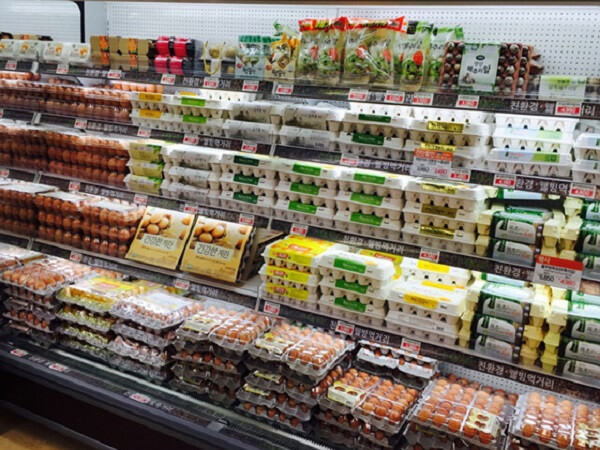
Seoul, South Korea – Egg prices in South Korea are set to hit a three-year high, surpassing 7,000 won per 30-egg carton, as soaring feed costs and other factors drive up production costs. To alleviate the burden on consumers, especially during the year-end holidays and the upcoming Lunar New Year, the government is considering a 1,000 won subsidy per carton starting next month.
According to data from the Korea Agro-Fisheries & Food Trade Corporation, the average consumer price of a 30-egg carton in December has already climbed 11.4% compared to January, reaching 6,983 won. With increased demand during the holiday season, prices are expected to exceed 7,000 won in December or January. This would mark the first time egg prices have been this high since July 2021.
Several factors have contributed to the rising egg prices, including:
Soaring feed costs: The average annual price of compound feed for poultry has increased by 22.2% since 2021, driven by the Russia-Ukraine war.
Avian influenza outbreaks: Several outbreaks of highly pathogenic avian influenza have led to the culling of hundreds of thousands of laying hens.
Increased demand: As the prices of other livestock products, such as beef, pork, and chicken, have risen, consumers have turned to more affordable eggs.
To address the rising prices, the Ministry of Agriculture, Food and Rural Affairs plans to implement a subsidy program starting next month. The subsidy will provide a 1,000 won discount on egg cartons sold at large supermarkets and agricultural cooperatives.
"We expect egg demand to increase significantly during the year-end holidays and the Lunar New Year," said a ministry official. "To prevent prices from exceeding 7,000 won per carton, we will provide a 1,000 won subsidy and continue to support the industry through self-imposed levies after the holiday season."
The rising egg prices are adding to the burden on consumers who are already facing higher prices for various goods and services due to inflation and other economic factors.
[Copyright (c) Global Economic Times. All Rights Reserved.]






























